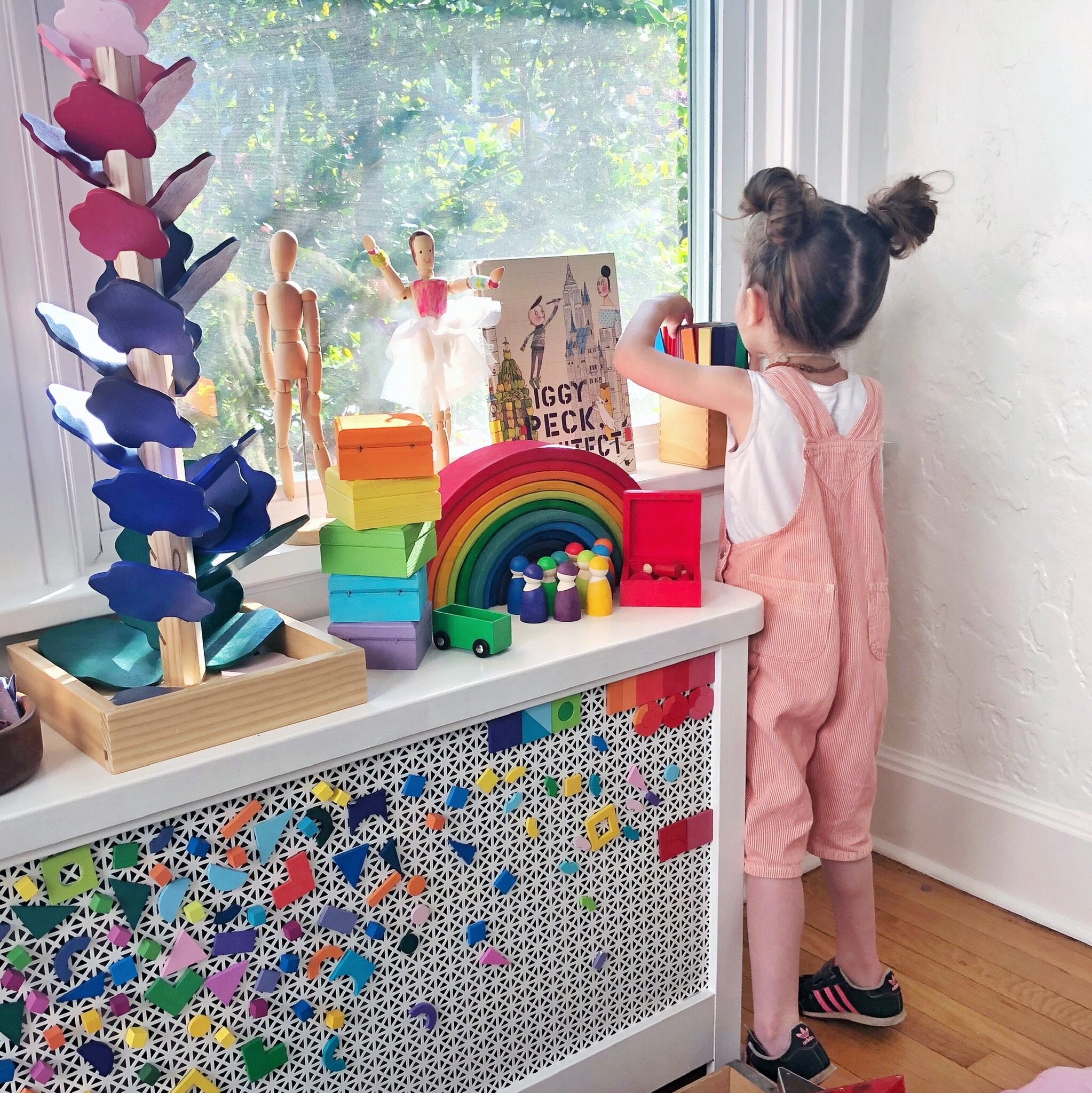RAISING KIND CHILDREN
/“Unexpected kindness is the most powerful, least costly and most underrated agent of human change. ”
A really beautiful thing happened to me the other day. A neighbor rang my doorbell and complimented me on a job well done. She went on to tell me about a time that Nate hopped off his bike while he was riding with friends and helped her carry her groceries to her front door. She told me about another time that she looked outside on a snowy day and Ruby was shoveling her front walk. The neighbor offered her money, but Ruby declined. My girl explained that she was just trying to help.
I was so moved by this information. It felt important. I wanted to learn more, so I asked Nate, "Why do you choose to be so kind to others?" He gave me a really weird look so I explained the premise of this blog post. I told him that my heart was full and I wanted to understand more about his thinking so that I could share it with others. Then I asked him again, "Nate, seriously, what is it that makes you choose to be a kind to people over and over again?" "IT FEELS GOOD.", he said.
Yes, it does, my sweet boy. Yes, it does.
When we are kind to others it serves us right back. It feels amazing to give yourself to another living creature. It is incredibly humbling to see your own children internalize the gift of giving kindness.
If I can raise my children to be anything, I want to raise them to be kind and generous. Helping someone else ALWAYS yields happiness, and that's what we are really looking for, right? At the end of the day, I think we all wish that our children are happy.
How I am supporting my children to develop the habit of generosity and kindness:
1. Model. This is kind of obvious, but when I see someone who needs help, I help. I try to help every time I am able. I especially help when I am out and about with my children. At the grocery store, we offer to lift bags for older people or moms who have full hands. At the beach, it means helping strangers haul their kayak or lug their beach chairs. On the streets of NYC, it often means buying a hot dog or a warm drink for the homeless person on the corner and modeling how to look a person in the eye when offering to help.
2. Teach Meaningful Skills. From when they were very small, the children worked side-by-side with my husband as he tirelessly raked leaves or shoveled the driveway. They loaded the washing machine with me and learned how to work the buttons. On the beach, it was their responsibility to carry something from the car to the shore, even if in the moment, it would've been easier to just do it myself. We taught them that their help was necessary. Their participation was integral to making things run smoothly for our family. Now they know what it means to help. They know how it feels. They have the confidence in themselves to do a job well, which makes them feel generous.
3. Set Expectations. I expect my children to be helpers. I expect them to offer to hold the door for a friend. I expect them to pick up garbage when it is on the trail in the forest. I expect that helping others is just a part of who we are as people. It's not an extra thing that we happened to do on a particular day, it a part of who we are. If they forget, I remind them. I try to do it with grace, and not to judge, but I will always remind them to be kind where they can.
4. Emphasize Feelings. Finally and most importantly, I try to catch them being kind in ways that are small and big. When I do, I emphasize the feelings they helped create and not the specific task that they completed. For example, you might hear me saying, "Ruby, Maria looked so relieved when offered her the extra water bottle that you brought. I think she was worried about forgetting hers and you really helped her feel better." OR, "Nate, Sonya was so stressed when she was trying to pick up all of the spilled crackers and stop her toddler from running away. She was able to keep her baby out of the street while you picked up the mess he made. " OR "Sloane, you helped Eloise feel brave when you held her hand as you walked in the door." Reflecting their acts of kindness back at them REALLY goes a long way. You don’t have to heap praise on it. Acknowledge the difference your child made for someone else.
WE ARE NOT PERFECT-
For the sake of keeping it very real over here, they don't help all the time and neither do I. There are times when they/we are in a bad mood or distracted or have our own hands full. That's perfectly okay with me. We are all human. But, because the kids know what it feels like to truly be kind and generous, to feel that really warm, good feeling when you just know you've made a difference to someone else, I think they will want to be helpers for a long time to come. At least, I really hope so.
I hope you found this post helpful. If you want to hear more from me, please be sure to subscribe to my blog and join the conversation over on Instagram.
-Lizzie



